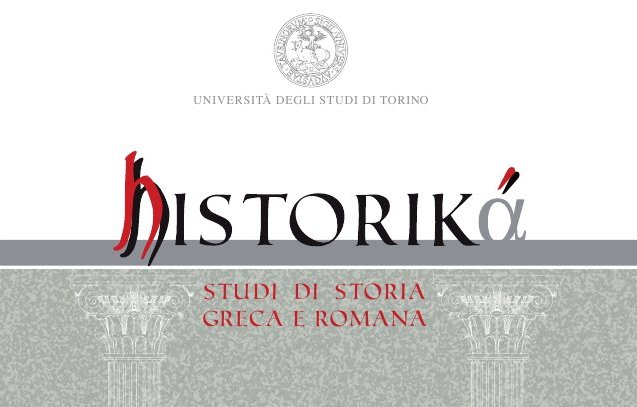La « thalassocratie » : mythes et réalité historique (à propos de « la liste d’Eusèbe »)
DOI:
https://doi.org/10.13135/2039-4985/1904Abstract
The « List of Thalassocracies » in Eusebius is the subject of learned debates for more than one century. Two currents of thought emerge: the proponents of a strange document without great historical value and those who wanted to prove at all costs its documentary quality, convinced that the List is an old and solid inventory illuminating the mastery of the sea in the dark ages. Here, the document is firstly reviewed in the light of the main arguments of each other. The examination is shown to be inconclusive: in practice, the List strangely comes to an end at the beginning of the 5th cent. bc, has no firm ancestry and does not match with what is formally found in Diodorus' books, the source yet claimed in the first introductory line. Secondly, in front of this inconclusive approach, a new proposal is set out. The working-out of the List could be attributed to Eusebius himself: he would have freely drawn up the List from the historical material collected in Diodorus and have stopped on a fact finding echo in a major contemporary event. The bishop of Caesarea, very involved in the debates of his time, was always anxious to please Constantine. In his Chronicle reissued for Vicennalia of the Emperor, Eusebius probably wanted to celebrate the heroic exploit recently accomplished by his eldest son Crispus now fit for an imperial destiny: the Prince had just beaten the Constantine's rival, Licinius Augustus, in a great naval joust in the same area where Xerxes had crossed the Hellespont on two decks of ships bound with cables afterwards recovered and consecrated at Delphi by the Athenians. The brutal subsequent elimination and condemnation to oblivion of Crispus obliged Eusebius to quickly remove any explicit reference to the fallen son in his works. In his Chronicle, this ultimate « correction » has hidden the raison d'être for a list not implausible but of later conception.
##submission.downloads##
Pubblicato
Fascicolo
Sezione
Licenza
Gli autori che pubblicano su questa rivista accettano le seguenti condizioni:
- Gli autori mantengono i diritti sulla loro opera e cedono alla rivista il diritto di prima pubblicazione dell'opera, contemporaneamente licenziata sotto una Licenza Creative Commons - Attribuzione che permette ad altri di condividere l'opera indicando la paternità intellettuale e la prima pubblicazione su questa rivista.
- Gli autori possono aderire ad altri accordi di licenza non esclusiva per la distribuzione della versione dell'opera pubblicata (es. depositarla in un archivio istituzionale o pubblicarla in una monografia), a patto di indicare che la prima pubblicazione è avvenuta su questa rivista.


 The journal has been approved for inclusion in DOAJ. The DOAJ listing of the journal is available at
The journal has been approved for inclusion in DOAJ. The DOAJ listing of the journal is available at 

